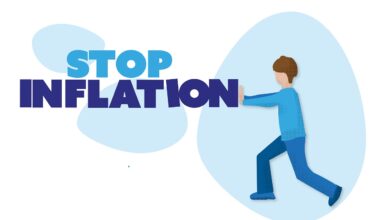The Role of Communication in Debt Negotiations
Debt negotiations can be a daunting process for many individuals and businesses. Effective communication is essential during these negotiations to ensure all parties understand each other’s concerns and limitations. Clear articulation of financial situations helps creditors see the reality faced by debtors. Additionally, using an empathetic tone when discussing hardships can foster a more collaborative environment. Creditors are often more willing to negotiate if they feel they are working with someone who is sincere. Furthermore, active listening is a crucial part of negotiations; it allows you to grasp the creditor’s position. By understanding their perspective, you can tailor your proposals as a mutually beneficial solution. Therefore, carefully preparing for conversations with creditors is necessary. It includes organizing financial information, understanding what can realistically be negotiated, and being ready to answer questions revealing your situation. Establishing a rapport with creditors through respectful and honest communication can lead to favorable outcomes. Overall, improving communication strategies can significantly influence the negotiation process and help reduce debt obligations effectively. Being open, honest, and respectful can build trust, leading to more streamlined negotiations.
It is important to remember that negotiations are often a two-way street. As a debtor, you must keep in mind that creditors also have their own challenges and restrictions. When approaching debt negotiation discussions, acknowledging the creditor’s position can help establish a more amicable environment. Through effective communication, you can clarify your circumstances and request adjustments that may ease your financial burden. Addressing the situation honestly and providing detailed financial information is beneficial. For instance, if you can present a solid repayment plan, creditors may find you more credible and reliable. Creating a win-win scenario can also minimize the stress often associated with debt negotiation. Here, suggesting different repayment options can open up pathways for mutually acceptable solutions. Perhaps you may consider proposing lower payments over a more extended period or negotiating temporary deferments to make payments manageable. Additionally, maintaining open channels for communication throughout the negotiation period is crucial. This includes being responsive to any requests for further information or updates from the creditor, which demonstrates your commitment to resolving the debt actively.
Understanding the Importance of Active Listening
Active listening is a vital component of effective communication in any context, particularly during debt negotiations. It involves being fully present in the conversation and engaging with the creditor’s message. When you practice active listening, you demonstrate respect for the creditor’s perspective. This behavior creates a positive atmosphere, making negotiations smoother and more productive. To engage in active listening, summarize what the creditor says and clarify any points you do not fully comprehend. Moreover, you should avoid interrupting them while they’re speaking, allowing them to articulate their thoughts completely. This approach not only shows respect but also provides you with valuable insights into their position and motivations. Gathering this information can help you prepare effective counterarguments and persuasive proposals. Moreover, acknowledging the creditor’s concerns and addressing them directly can enhance the quality of your interactions. Frequent communication is crucial since it opens avenues for further discussion and compromises. Lastly, a solution-oriented mindset during negotiations can facilitate a shared understanding, advancing the negotiation towards a favorable resolution.
Utilizing written communication is another effective way to enhance interactions during debt negotiations. While verbal discussions are significant, following up with written correspondence can solidify agreements and clarify miscommunications. Drafting emails that summarize discussions keeps all parties informed. This documentation serves as a reference point if misunderstandings arise later. Additionally, having a paper trail can motivate creditors to honor their commitments. When crafting written communication, ensure to keep it concise, straightforward, and formal. Use respectful language to reflect professionalism, which can positively influence all dealings. Additionally, it can also be beneficial to include documentation that supports your case. These papers may include pay stubs, recent financial statements, and other relevant documents. By presenting these materials, you provide context for your requests. However, remember that the quality of communication matters more than its quantity. A well-crafted, honest message is better than longer, less focused correspondence. Emphasizing clear communication in writing during negotiations is essential, establishing transparency and reliability, which encourages trust from creditors.
Establishing Trust through Transparency
Trust is a fundamental component of any successful negotiation, especially in the realm of debt reduction. Transparency in your financial situation plays a crucial role in building that trust with creditors. When negotiating, ensure that you provide accurate information about your current financial standing. Disclosing hardships, such as loss of income or medical expenses, can help creditors empathize with your situation. This empathetic approach can lead to more favorable lending terms or repayment extensions. It is also imperative to avoid making promises you can’t keep. False assurances can damage your credibility and worsen your position. Instead, communicate effectively about what you can realistically achieve in your negotiations. Additionally, maintaining a consistent line of communication can keep creditors informed about your progress. If you encounter changes in your financial situation, promptly updating creditors demonstrates accountability. Moreover, allowing creditors to understand your efforts in repaying the debt establishes goodwill on your side. Candid discussions can also reveal hidden opportunities for negotiation offering solutions you may not have considered initially.
Moreover, using negotiation strategics such as positivity can impact your communication’s outcome. A constructive attitude often translates into more successful negotiations. When you approach a discussion with optimism, it may inspire confidence among creditors, who will see you as someone willing to collaborate. Their willingness to compromise might enhance as you express your commitment to resolving matters positively. Additionally, focusing on solutions rather than problems provides a healthy communication framework. It advances the conversation into a productive direction by proposing alternatives that are sensible yet beneficial for both parties. During negotiations, it’s also vital to remain calm and composed, even when discussions become tense. Taking deep breaths and pausing to collect your thoughts can help maintain a respectful atmosphere. Furthermore, using phrases that reinforce partnership, like “Let’s work together to find a solution,” can shift the tone of the negotiation. By enhancing communication through positivity and solution-focused dialogue, you may find creditors are more likely to offer assistance toward debt reduction.
Final Thoughts on Effective Debts Negotiation
As negotiations progress, reflecting on the communication strategies implemented can guide your future efforts. Understanding what worked and what did not allows you to refine your approach over time. Moreover, gathering feedback from creditors can highlight areas of improvement. Creating communication frameworks tailored to your unique circumstances can significantly increase your likelihood of achieving favorable results. Continually educating yourself about effective negotiation tactics, such as conflict resolution and persuasive communication, can enhance your skills. Seeking assistance, if needed, ensures you are well-prepared during negotiations. Each interaction is an opportunity to learn, so be proactive about adopting new techniques. Embrace a mindset of continuous improvement and adaptability as you navigate the complexities of debt negotiation. Finally, cultivating solid relationships with creditors through ongoing communication can lead to positive outcomes and fewer issues in the future. By enhancing your skills and approaches to communication, you pave the way for successful debt management while establishing meaningful connections with creditors that foster trust and respect.
In conclusion, effective communication plays a vital role in debt negotiations. The importance of establishing a rapport with creditors cannot be overstated. Through honest discussions and active listening, you can significantly enhance your chances of achieving favorable terms. Transparency about your financial situation encourages creditors to empathize with your challenges. Moreover, combining written and verbal communication strengthens your interactions, thus paving the way for more productive negotiations. Utilizing a positive approach and focusing on solutions helps to establish an environment of cooperation. Building trust is essential, as it can lead to better outcomes. Lastly, reflecting on your experiences in negotiation enriches your communication strategies for the future. Embrace these principles to guide your debt negotiations effectively, allowing you to foster valuable relationships with creditors. Remember to stay informed and adapt your methods as necessary for continual improvement. Overall, enhancing your communication skills during these financially stressful times sets the stage for successful debt reduction efforts. By doing so, you invest in not only settling debts but also creating a foundation for better financial health moving forward.


